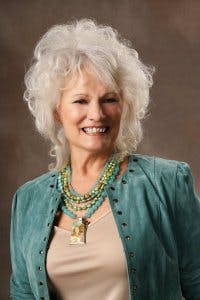Determining Your HVAC Company's Purpose Leads to Success
Last month, CVS announced their intent to remove all tobacco products from their stores. Larry J. Merlo, president and CEO of CVS Caremark, said in a statement, “Ending the sale of cigarettes and tobacco products at CVS pharmacy is the right thing for us to do for our customers and our company to help people on their path to better health. Put simply, the sale of tobacco products is inconsistent with our purpose.”
This column is not about whether smoking is bad for a person’s health. It is. Instead this column is about having a company purpose or mission, and measuring the company’s actions and behaviors against that purpose.
CVS has taken a gutsy move. It’s estimated the company has nearly $2 billion in revenue from the sale of tobacco products. $2 billion! It’s not easy to walk away from that amount of practically-guaranteed revenue, in spite of the positive public relations and free advertising CVS is enjoying because of this move. The decision was made because the sale of tobacco products did not mesh with the company purpose of “helping people on their path to better health.”
The U.S. Chamber of Small Business states that “a mission statement can be a powerful way to define a company’s purpose.” Trying to define what a mission statement is has always been somewhat fuzzy for me, but when put in the framework of a purpose, I get it.
When asked what his purpose was, Walt Disney is reported to have said, “To make people happy.” Notice he didn’t say create cartoons or build amusement parks. His stated purpose was to make people happy and cartoons and amusement parks were the means he used to make that happen.
Mary Kay Ash, founder of Mary Kay Cosmetics, stated that her purpose was “To give unlimited opportunity to women.” Her purpose does not state that she wanted to make women more attractive or beautiful. Instead she stated that she wanted to provide more opportunity.
Mary Kay Cosmetics was founded in 1963, at a time when women infrequently had a job outside of homemaking. The company was founded on the concept that women could sell cosmetics as a part-time job from their homes, giving them a greater sense of independence. And she created a selling system that even 50 years later fits within her purpose and works.
The final example of a company with a purpose is Sony. In the early 1950’s, Sony stated that it wanted “To become the company most known for changing the world-wide poor quality image of Japanese products.” As a baby boomer, I can remember when the phrase “made in Japan” meant junk. Not today.
So what does a purpose, other than selling heating and air conditioning services, do for a heating and air conditioning company? For one thing it provides a framework for making company decisions.
For example, if part of your purpose is to be easy and convenient to do business with, your company might decide to offer service to consumers at least six days per week with extended hours at regular rates. After all, you don’t pay a higher overtime price for buying a pair of boots from a retailer at eight o’clock at night. A mission of being the most professional company in a given geography could lead to decisions such as insisting on well-groomed, uniformed technicians who conduct load calculations before any equipment installation.
A stated mission of having the highest integrity could lead to background checks and drug testing. It might also lead to inspections of ductwork before new high-efficient equipment is installed on poor performing duct systems.
A purpose also keeps the company focused. Having a focus, such as a defined geography means advertising dollars are spent more effectively. That means targeted advertising in neighborhoods that match your geography.
Finally, a purpose or mission statement should be easily understood by everyone in the company and transferable to everyday actions. A number of companies have a stated purpose of treating customers like family. Certainly easy to understand. Now make it transferable.
On Friday afternoon at 5 p.m. after being paid at noon, a service technician who has been on 5 service calls in 100 degree weather would still properly diagnose and fix an air conditioning problem (not just add 2 pounds of refrigerant) on his sixth service call because that is how family is treated. And the boss would be there with a cold drink for the technician because that is also how family is treated.
Determine your company purpose and then begin to measure all your decisions against that purpose. It just might lead to a more focused, healthy successful company.
About the Author
Vicki LaPlant
Consultant
Vicki LaPlant was a trainer and consultant to HVAC contractors for more than three decades, and was also a marketing professional for Lennox Industries. Now retired after a stellar career, Vicki would help people work better together for greater success. Vicki was a longtime Contracting Business.com editorial advisory board member. She is a wonderful person.

